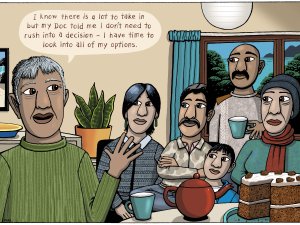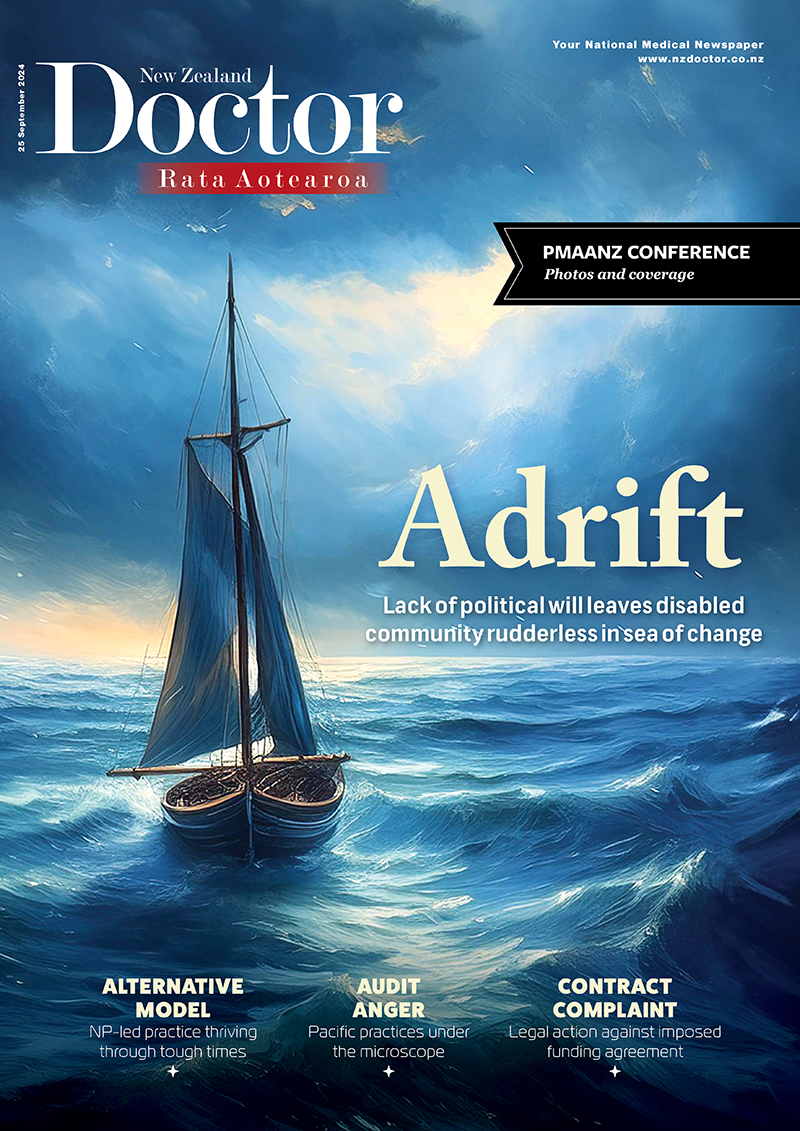Prostate cancer consultations are common in primary care and there is no one approach to testing and treatment that fits all patients. Urologist Simon van Rij discusses the key considerations and options for personalised care, appropriate investigation and treatment
The sweet smell of success for health ministers lies not in mould or media
The sweet smell of success for health ministers lies not in mould or media
In Tim Tenbensel’s tale of two health ministers, neither emerges basking in glory, but one may yet prove to have lit the spark on healthcare integration
Mr Ryall’s political management was masterful, whereas Dr Coleman never appeared to advance beyond the level of novice
Jonathan Coleman’s retirement from Parliament presents an opportunity to reflect on his legacy as minister of health, and to ask what defines success in one of the most difficult jobs in the land.
Taking an inductive approach to this question, consider who would be on your list of successful health ministers of the past 30 years. Helen Clark? Bill English? Annette King? Perhaps Tony Ryall?
It is an inevitably subjective exercise. Given the considerable challenges of the job – the plethora of stakeholders with contending interests, high potential for negative publicity and complexity of steering a system that constitutes around 6 per cent of GDP – it is clear some have managed better than others.
Some of those named above went on to lead their party and the Government; they not only survived but prospered. For others, the portfolio was the last stop before leaving politics.
If we restrict our sample to the past decade, we find some important clues in the contrasting ministerial careers of Mr Ryall and Dr Coleman. A defining feature of Mr Ryall’s tenure was his ability to keep health services out of the headlines, a remarkable feat for a minister of health. Very little mud ever stuck to him. He managed the media on his own terms not theirs.
In contrast, leading up to the 2017 election, Dr Coleman was battling multiple fires. DHBs were in open revolt against the Ministry of Health, with botched Budget allocations the straw breaking the camel’s back.
Dissatisfaction with access to mental health services was widespread among the health sector and the public. Southern DHB’s problems, exemplified by failures in urology services, provided ready fodder for headline writers.
Dr Coleman clearly struggled to contain these fires. An enduring image is of him hanging up during his final radio interview with RNZ when questioned about Auckland’s mouldy Middlemore Hospital; he thought it was to be a friendly chat about his parliamentary career.
Mr Ryall’s political management was masterful, whereas Dr Coleman never appeared to advance beyond the level of novice.
In 2009, Mr Ryall toyed with the idea of restructuring the health system on the advice of Murray Horn’s Ministerial Review Group. At the first hint of resistance from Ian Powell at the Association of Salaried Medical Specialists, Mr Ryall opted for an “under the radar” approach, establishing the National Health Board as a business unit within the ministry.
His use of the six national health targets as the focus of accountability to the electorate was straight from Ms Clark’s pledge-card playbook of the 2000s.
By contrast, Dr Coleman’s political management came from a very different playbook – of the “how not to do it” variety. This was exemplified by his handling of the Very Low Cost Access scheme. He insisted to primary care stakeholders dissatisfied with VLCA that it was too hard to change, and would never become an election issue anyway, but he then backflipped during the 2017 election campaign.
Another strong contrast between Mr Ryall and Dr Coleman was their relationship with the ministry. Early in Mr Ryall’s tenure, he bypassed the ministry and sought policy counsel from his own trusted sources. Dr Coleman, on the other hand, largely left the ministry senior leadership to drive policy, at a time when the ministry was experiencing significant internal turmoil.
Does Mr Ryall’s stellar political management skills qualify him to make the list of successful ministers? While this is an important, and often underestimated, attribute, it cannot be the sole criterion of success. Leadership of substantive policy change and its successful implementation must top the list.
Does presiding over the achievement (or near-achievement) of national health targets fit this description? On balance, I would argue not.
The target-induced progress in child immunisation deserves international and historical recognition. (But don’t forget the upswing started in 2007, when then director-general of health Stephen McKernan introduced the immunisation target.) The remaining targets each became less meaningful over time as DHBs and PHOs learned how to play the target game.
Some of the chickens that came home to roost on Dr Coleman’s watch were hatched during Mr Ryall’s tenure precisely because he prioritised the management of political risk. For example, the dysfunctional state of the ministry at senior levels was largely a consequence of Mr Ryall’s decision not to provoke opposition over the creation of the NHB. This sowed the seeds for the internal division within the ministry from 2014.
Nevertheless, policy legacies truly become apparent over time. Historical appreciation of Mr Ryall may well rise if he is credited with ushering in a new age of collaborative, integrated sector relationships through district alliances. The jury is still out on that one.
No one should underestimate the scale of the challenge that faces new minister David Clark in the health portfolio. But let’s all hope his stint in the job will provide some positive examples of successful stewardship.
Tim Tenbensel is head of the health systems group at the University of Auckland
We've published this article as a FREE READ so it can be read and shared more widely. Please think about supporting us and our journalism – subscribe here




